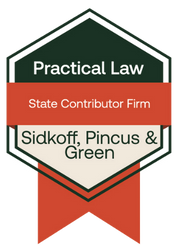FINRA v. Morgan Stanley

The Financial Industry Regulatory Authority (FINRA) is a non-profit organization that Congress has tasked with ensuring the securities industry operates in accord with government regulations. FINRA operates to ensure that investors receive basic protections. Recently, FINRA ordered the Wall Street investment bank and securities brokerage firm, Morgan Stanley, to pay $13 million in fines and restitution to clients of the bank for failing to properly supervise short-term trades. The regulatory body fined Morgan Stanley $3.25 million, and the remaining nearly $10 million was to be paid back to investors.
According to FINRA, between January 2012 and June 2015, brokers had given thousands of clients poor advice regarding unit investment trusts, or UITs. A unit investment trust pays investors a return based on how the investment performs, not unlike mutual and closed-end funds. They are designed to be held only for a certain period. They are designed to provide capital appreciation and in some cases, dividend income.
Morgan Stanley brokers advised clients to sell unit investment trusts before the products had matured. The brokers then instructed them to roll the trusts over into a new trust, resulting in higher sales charges over time. After interviewing more than 65 Morgan Stanley employees, FINRA found that the practice was highly questionable. The agency was concerned that the practice was not in the best interests of Morgan Stanley investors.
In addition to finding that individual Morgan Stanley brokers made questionable decisions relating to unit investment trusts, FINRA also held supervisors accountable. Supervisors were not adequately trained to recognize unsuitable short-term rollovers. It also found that Morgan Stanley did not have a proper system in place to detect and stop the negligent transactions before they were carried out. Although Morgan Stanley consented to the agency’s findings, the company had refused to admit or deny the charges and the matter was resolved without admission of guilt on the bank’s behalf.
Philadelphia FINRA Lawyers at Sidkoff, Pincus & Green P.C. Represent Clients in FINRA and Securities Actions
Securities and investment management is complicated business. At Sidkoff, Pincus & Green P.C., we help our business clients resolve the most complex and daunting FINRA actions. We also represent investors in all types of securities fraud and misrepresentation actions. To schedule a consultation with a Philadelphia FINRA lawyer, call us today at 215-574-0600 or contact us online.



















